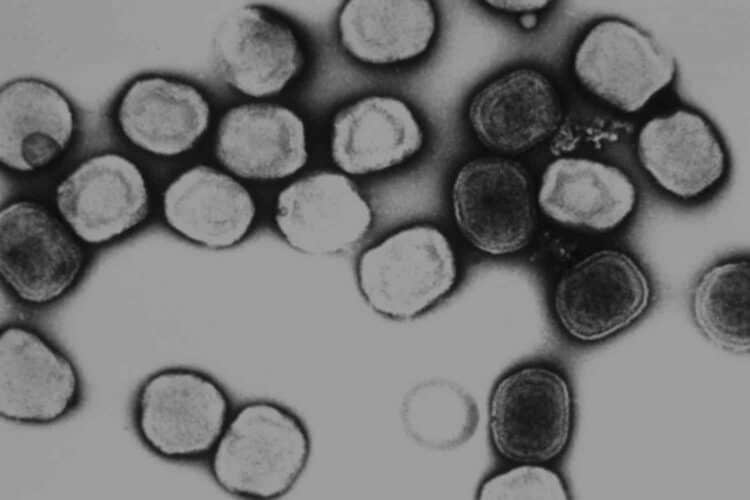Monkeypox is the latest virus to cause global panic after COVID-19.
UPDATE: The first monkeypox case has been detected in South Africa. Read more.
Monkeypox FAQ: What you need to know
Monkeypox is, according to the World Health Organisation (WHO), a virus usually transmitted to humans from animals. It shares great similarities in symptoms with smallpox, however, it’s clinically less severe.
Before the current anomolous outbreak, monkeypox was endemic in West and Central Africa, where people were usually infected after close contact with animals like wild rodents and primates.
This time, however, the WHO and leading virology institutions such as the Centre for Disease Control (CDC) and Prevention, are tracing an unlikely cause of the spread in the virus.
So far, according to the WHO, more than 90 cases of monkeypox have been reported in 12 countries like Canada, Spain, Israel, France, Switzerland, the U.S. and Australia.
Here is a list of frequently asked questions on monkeypox and answers derived from the WHO, CDC, and South Africa’s National Institute for Communicable Diseases (NICD):
How is Monkeypox transmitted?
According to the CDC, research is still ongoing on the likely cause of the unsually high transmission of the viral zoonosis. While, traditionally, the virus was spread from animals to humans, this time around, monkeypox is being passed around by human-to-human contact.
Early findings suggest that the virus is spread through close and intimate contact. Sexual contact seems to be the leading cause of transmission, but any close contact with bodily fluids and sores can cause an infection, the CDC warns.
Monkeypox can also spread through respiratory droplets but, unlike COVID-19, this requires prolonged face-to-face contact.
“Respiratory spread is not the predominant worry. It is contact and intimate contact in the current outbreak setting and population,” the CDC’s Dr Jennifer McQuiston said.
What are the symptoms?
The easiest way to detect monkeypox is by checking for rashes on a person’s genetal regions. According to the CDC, early symptoms of the virus include:
- fever
- headache
- muscle aches
- chills
- exhaustion
- swollen lymph nodes
Thereafter, infected patients can expect to develop rashes on the face, hands, feet, eyes, mouth, and/or genitals that progressively transform into puss-filled bumps.
Is Monkeypox spreading in South Africa?
Thus far, there are more than 90 cases reported in at least 15 countries, according to the WHO.
In a situation report published by the NICD on Monday 23 May 2022, there were no known cases of monkeypox in South Africa.
Health officials in the country remain on high alert, especially since three cases of the virus were reported in the United Kingdom (UK).
“The implications for South Africa are that the risk of importation of monkeypox is a reality as lessons learnt from COVID-19 have illustrated that outbreaks in another part of the world can fast become a global concern,” says NICD Executive Director, Prof Adrian Puren.
Can you die from Monkeypox?
According to the CDC, illness from monkeypox usually lasts for two-to-four weeks. While, for the most part, the virus is mild, in Africa, it has been shown to cause death in as many as one in 10 patients.
Is Monkeypox only spreading in the LGBTQIA+ communities?
Health experts are still reviewing data and tracing the likely cause of this anomolic spread of monkeypox outside of Africa.
According to trace efforts led by the WHO, the current wave of infections could have been prompted by sexual activity at two superspreader events held by LGBTQIA+ organisations in Spain and Belgium.
“By nature, sexual activity involves intimate contact, which one would expect to increase the likelihood of transmission, whatever a person’s sexual orientation and irrespective of the mode of transmission,” Mike Skinner, a virologist at Imperial College London said.
While monkeypox is not reserved to LGBTQIA+ communities, “males accounted for more than 70%, mostly aged between 20-55 years, and have been detected through sexual health services.”
Is there a vaccine for Monkeypox?
Thus far, JYNNEOS is the most commonly used and FDA-approved vaccine to provide protection against monkeypox. Smallpox vaccines are also used to treat high risk patients, the NICD confirmed.






